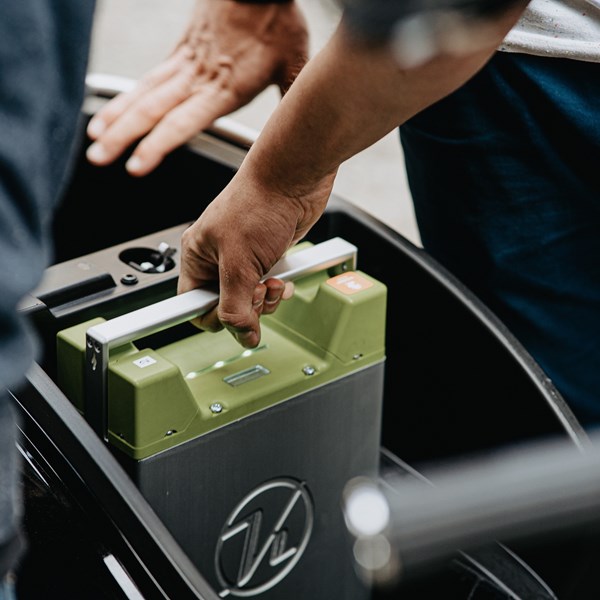Order no. ORD_587436/2023
Action no. ACT_571808/2023
In the latest decision on third party access requests, the Paris Central Division ruled that a direct interest in opposition proceedings, being heard in parallel to a UPC revocation claim concerning the same patent, justifies access to evidence and pleadings filed on the Case Management System (CMS) in respect of the UPC proceedings.
BACKGROUND
The applicant, Nicoventures Trading Limited (the “Applicant”), is an opponent in EPO opposition proceedings concerning patent number EP 3420921 (the “Patent”), which is also the subject of an ongoing UPC revocation claim brought by NJOY Netherlands B.V. Note that NJOY Netherlands B.V. is not an opponent to the Patent before the EPO.
The Applicant applied (pursuant to Rule 262.1(b) of the Rules of Procedure) for access to written pleadings and evidence submitted by the parties in the UPC revocation proceedings, reasoning that the submissions in such documents may impact upon the outcome (and scheduling) of the pending EPO opposition it is party to. It also contended that any new evidence filed as part of the UPC action may be admissible in the opposition.
The Applicant more broadly sought access to documents generated by the Court which are visible in the CMS, as well as any further materials that may be filed in the future or not yet published in the CMS.
DECISION
The Court granted the Applicant access to pleadings and evidence, based on the direct, special interest it has in the proceedings. The Court was satisfied that the Applicant’s request met the requirements for a “reasoned re quest” set out in the Court of Appeal’s decision in Ocado v Autostore (UPC_CoA_404/2023 APL_584498/2023), having explained the purpose of the request and why access is necessary for that purpose.
By reference to Article 45 of the UPC Agreement, the Court then undertook the “balancing of interests” exercise set out in Ocado v Autostore, weighing up the interests of the public against the parties’ general interest in the integrity of ongoing proceedings.
The Court made clear that, as a general principle, a revocation action gives rise to a higher degree of public interest than that which arises in respect of infringement proceedings, with there being a general public interest in challenging invalid patents which constitute “an objectively unjustified impediment to competition”.
The Court also acknowledged that similar arguments will most likely have been discussed in the context of the EPO opposition proceedings, in respect of which the file is publicly accessible. It considered that it would generally be in the public interest to examine any discrepancies between the submissions put forward in the EPO and UPC proceedings and that, in these circumstances, a similar approach to accessibility of documents in the respective forums should be taken.
Overall, the Court determined that the balance of interests weighed in favour of the Applicant, having a clear, direct interest in the subject matter of the proceedings.
In line with the Applicant’s request, the Court also granted immediate access to the pleadings and evidence (in view of the ongoing opposition) and made clear that, in these circumstances, the Applicant should not be required to wait until the proceedings have terminated to be granted access (albeit acknowledging that the Court of Appeal in Ocado v Autostore made clear that access is more likely to be granted where a case has ended, as the “integrity of proceedings” principle is no longer in play).
The Court did not, however, grant the Applicant access to court-generated documents, nor unspecified “future” or not yet published documents submitted as part of the action, making clear that it has no legal basis to do so under the UPC Agreement or UPC Rules of Procedure.
COMMENTARY
This is the first decision applying the Court of Appeal’s reasoning in Ocado v Autostore, which overall marked a move towards granting third party access to case documents filed on the CMS.
Somewhat unsurprisingly following the Court of Appeal’s decision, the Applicant’s involvement in parallel opposition proceedings was considered a ‘special interest’ which weighed heavily in favour of granting access to pleadings and evidence filed in parallel revocation proceedings. This is particularly when bearing in mind the wider public policy considerations at play in respect of revocation actions. The Court went so far as to indicate that it should be mirroring the EPO’s approach to transparency when it comes to providing public access to documents, albeit only in these specific circumstances.
The Court did, however, draw some boundaries as to the scope of requests made under RoP Rule 262.1, making clear that it was not intended to extend to unknown future documents or those not yet published in the CMS (instead, a specific request should be made once the document becomes available), or court-generated documents (distinguished from orders and decisions, which will always be published by the Court).






